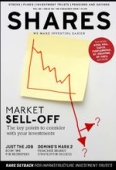Archived article
Please note that tax, investment, pension and ISA rules can change and the information and any views contained in this article may now be inaccurate.
When should you use a dealing account to invest?

Inexperienced investors may wonder why investment platforms offer dealing accounts, given the widely-held view that it is better to use ISAs to hold stocks and funds, thanks to the wrapper’s tax benefits.
Dealing accounts are generally needed for investors who invest more than £20,000 a year, as that’s the maximum you can invest in new money across the range of ISA wrappers. There are no limits on how much money you can deposit in a dealing account each year.
Once you’ve maximised your ISA allowance, you can then put any additional payments into a dealing account (or a self-invested personal pension, if relevant).
Many investors may still have dealing accounts because they used to be the place to hold most AIM market shares before the rules changed in 2013. Previously AIM stocks weren’t allowed to be held in an ISA unless the company also had another stock market listing on a recognised exchange. All AIM stocks are now permitted to be held in an ISA.
If you have both a dealing account and an ISA, it is always worth using up the £20,000 allowance on an ISA first as all capital gains and dividend income will be tax free. The only exception is if
your investments are subject to withholding tax on dividends.
It is important to note some forthcoming rule changes which could have a negative impact on anyone holding dividend-paying investments in a dealing account.
Everyone in the UK has a personal allowance of £11,500, set to rise to £11,850 on 6 April 2018, which is the amount of income you don’t have to pay tax on. You also get a £5,000 dividend allowance which is the amount of income you can earn from dividends before paying tax.
The dividend allowance is set to fall to £2,000 from 6 April this year. Therefore many people holding dividend-paying investments in their dealing account risk paying income tax on their dividends.
You could sell an investment and repurchase it in your ISA, assuming you have unused ISA allowance, but you could be liable for capital gains tax when selling out of the dealing account if the value of your investment has gone up since the original purchase.
Please note that you only have to pay capital gains tax on your overall gains above your tax-free allowance which is currently £11,300, rising to £11,700 from 6 April 2018.
Both dealing accounts and ISAs can be used to hold shares, bonds, funds, investment trusts and exchange traded funds.
The costs of buying and selling these assets are generally the same for both account types; the main difference is the tax treatment.
Some people think the word ‘dealing’ in dealing accounts implies the account type should be used for casual share dealing; and that ISAs sounds more serious and is associated with long-term investing. In reality, both account types can be used for either strategy – but ultimately ISAs have the edge because of their tax benefits. (LMJ)
Important information:
These articles are provided by Shares magazine which is published by AJ Bell Media, a part of AJ Bell. Shares is not written by AJ Bell.
Shares is provided for your general information and use and is not a personal recommendation to invest. It is not intended to be relied upon by you in making or not making any investment decisions. The investments referred to in these articles will not be suitable for all investors. If in doubt please seek appropriate independent financial advice.
Investors acting on the information in these articles do so at their own risk and AJ Bell Media and its staff do not accept liability for losses suffered by investors as a result of their investment decisions.
Issue contents
Big News
- BP wins the battle of the oil majors
- Shoppers keep calm and carry on
- Four important stories from the past week: Capita, Purplebricks, BT and Vodafone
- Ocado story sours again
- Tesco impresses with profit and dividend guidance
- Weighing up the impact of the market sell-off
- Why Royal Mail’s pension breakthrough is such a big share price catalyst
 magazine
magazine









